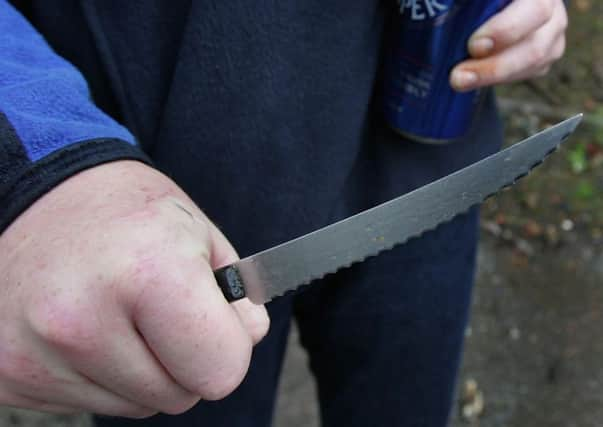Chris Marshall: Glasgow can shed knife-crime label


In this characterisation Glasgow was No Mean City, the phrase first used in the novel of the same name which celebrates its 80th anniversary this year.
That account of the Gorbals razor gangs left an indelible mark; stigmatising for decades a city which had so much more to boast than violence.
Advertisement
Hide AdAdvertisement
Hide AdUnfortunately, there were statistics to underpin that reputation - as recently as 2010 the World Health Organisation calculated that a person was three times more likely to die from a stab wound in Scotland than in England and Wales.
Yet something quite remarkable has happened during the past decade.
Figures released last week by the Scottish Government show the number of people caught carrying a knife or other offensive weapon has fallen by 67 per cent since 2006/7.
The figures for those under the age of 19 convicted for having an offensive weapon are even more stark - down from 812 in 2006/7 to 165 last year, a fall of 80 per cent.
According to the official statistics, the number of people being convicted for carrying a knife is at the lowest level since 1985.
The fall in knife-carrying has not happened in isolation; overall recorded crime is at its lowest level for 41 years.
The SNP is keen to draw a link between this startling statistic and the 1,000 extra police officers it pledged in 2007 and continues to deliver.
Yet the falling crime rate simply reflects what is happening across the developed world.
Advertisement
Hide AdAdvertisement
Hide AdAn overly simplistic interpretation is that as the standard of living goes up, the crime rate goes down.
However, others will tell you that factors including the removal of lead from petrol have played their part.
But the falling incidence of knife-carrying in the west of Scotland is the result of much more than just happy chance.
The concerted effort of campaigns, most notably the Scottish Government’s No Knives, Better Lives initiative have made a dramatic impact by tackling the credo that young men need to carry a blade.
The police will also claim that stop and search played its part, but others will point to a lack of reliable evidence to show this is indeed the case.
It would be both naive and foolish to think Scotland has somehow rid itself of knife crime and gang violence; there is still much to be done.
But the latest figures show intervention can make a difference. Eighty years on from Glasgow’s first depiction as No Mean City, at long last the stereotype can be left behind.